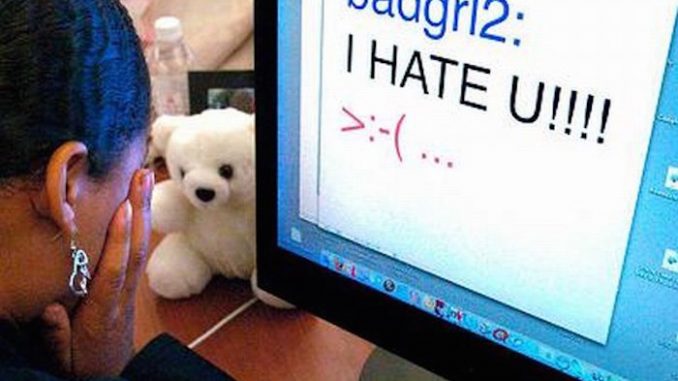
The Supreme Court has ruled that cyberbullying laws violate freedom of speech rights, and are therefore unconstitutional.
North Carolina’s harsh cyberbullying laws were designed in 2009 to protect children from online bullying, but were met with criticism in 2012 when a kid was arrested and charged for posting a screenshot of his classmates text on social media.

BYPASS THE CENSORS
Sign up to get unfiltered news delivered straight to your inbox.
You can unsubscribe any time. By subscribing you agree to our Terms of Use
Latest Video
RT.com reports:
“[The law] is not narrowly tailored to the State’s asserted interest in protecting children from the harms of online bullying,” Justice Robin Hudson wrote. “As such, the statute violates the First Amendment’s guarantee of the freedom of speech.”
The decision has reversed a ruling of the Court of Appeals in the case of Robert Bishop, who in 2012 was arrested and charged under a cyberbullying statute for posting a screenshot of his classmate’s sexually themed text on social media. He was sentenced to 48 months of probation and ordered to stay away from social media for a year.
“Many of the messages that ensued included comments and accusations about each other’s sexual proclivities, along with name-calling and insults,” the case read.
In his appeal, Bishop insisted the state’s statute “criminalizes protected speech based on its content,” but the court rejected that argument, saying that North Carolina’s law “regulates conduct, not speech.”
Until now, the statute made it “unlawful for any person to use a computer or computer network to . . . [p]ost or encourage others to post on the Internet private, personal, or sexual information pertaining to a minor” “[w]ith the intent to intimidate or torment a minor.”
The Supreme Court has disagreed, saying that North Carolina’s statute, adopted in 2009, in fact violated the freedom of speech.
The law, Hudson wrote, could “criminalize behavior that a robust contemporary society must tolerate because of the First Amendment, even if we do not approve of the behavior.”
Hudson has also ruled that the law created a content-based restriction on protected speech.
“[W]e can uphold this portion of the cyberbullying statute only if the State can demonstrate that it satisfies strict scrutiny. To do so, the State must show that the statute serves a compelling governmental interest, and that the law is narrowly tailored to effectuate that interest,” the ruling read.
The judge also agreed that the government’s intent to protect children was “undisputable.”


